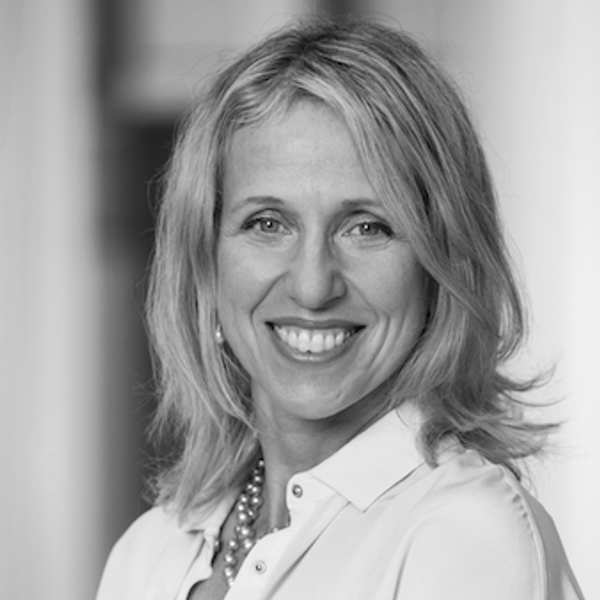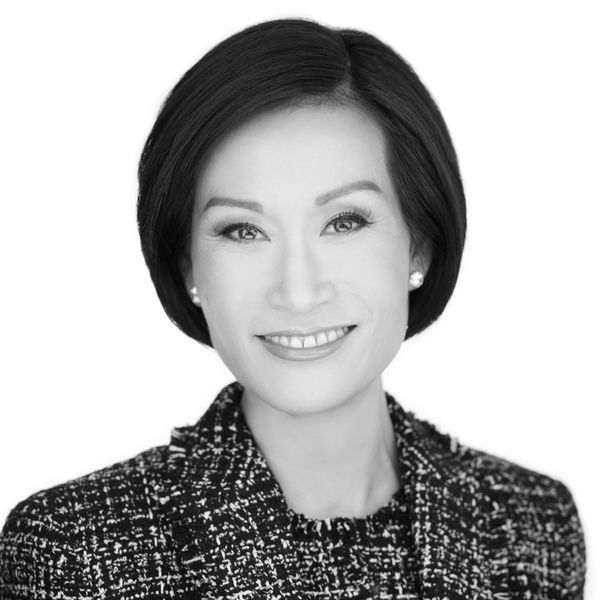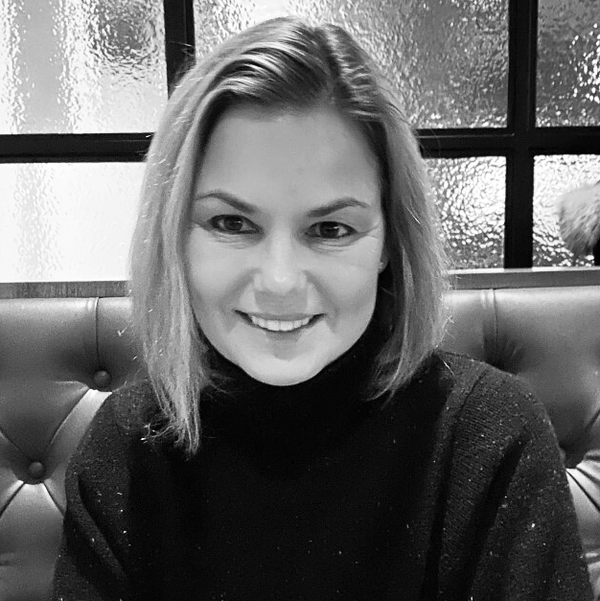Trending Now
We have updated our Privacy Policy and Terms of Use for Eurasia Group and its affiliates, including GZERO Media, to clarify the types of data we collect, how we collect it, how we use data and with whom we share data. By using our website you consent to our Terms and Conditions and Privacy Policy, including the transfer of your personal data to the United States from your country of residence, and our use of cookies described in our Cookie Policy.
{{ subpage.title }}
DVF in Davos: A fashion icon is still fighting for gender equality
“I wanted to be a woman in charge,” Diane von Furstenberg said. “And I became a conduit for a certain freedom.”
The iconic fashion designer, who changed women’s apparel 50 years ago with the “wrap dress,” has long been a champion of gender equality. This week in Davos, her work earned her a Crystal Award, presented annually by the World Economic Forum to creators and innovators making a positive impact on society.
DVF, in the rare stratosphere of stars known by just their initials, sat down with GZERO’s Tony Maciulis to talk about bridging the gender gap, the “masculine wave” currently in politics and business, what it means for diversity initiatives, and how she views her legacy decades into her historic career.
She reflected on the power of a “little dress” that built her career, her own inspirations including German actress and singer Marlene Dietrich, and why she has hope for the creative women of Gen Z.
Follow GZERO coverage of Davos here: https://www.gzeromedia.com/global-stage
Can we achieve gender equality by 2030?
It has been nearly 30 years since former US Secretary of State Hillary Clinton declared at the UN Conference on Women, hosted in Beijing, that “Women’s rights are human rights.” While progress has been made in some key areas, like education and access to healthcare, the number of women in the global labor force has remained largely stagnant since the 1990s. Women still trail men overall in income, digital inclusion, and even access to banking.
This week World Bank announced a bold initiative to bridge that divide by creating more economic opportunity, broadening female leadership, and reducing gender-based violence in the next 5 years as 2030 approaches. GZERO’s Tony Maciulis spoke to two of the architects of the plan—World Bank’s Global Head of Gender Hana Brixi, and Nathalie Akon Gabala, who is Global Director of Gender and Economic Inclusion at the International Finance Corporation.
Many global organizations have pledged to close the gender gap and have fallen short. Brixi tells Maciulis “more transparency and more accountability” will be needed to succeed, and details the approach World Bank will take in the coming years.
Watch more from Global Stage.
- Biden targets gender inequality in medical research ›
- What impact will AI have on gender equality? ›
- Graphic Truth: Are Canada and the US narrowing the gender pay gap? ›
- Bloc by Bloc: The gaping gender divide in the 2024 election ›
- DVF in Davos: A fashion icon is still fighting for gender equality - GZERO Media ›
- Leaders at Davos are turning "anxiety into action" - GZERO Media ›
Online violence means real-world danger for women in politics like EU's Lucia Nicholsonová
Content Warning: This clip contains sensitive language.
In a compelling dialogue from a GZERO Global Stage discussion on gender equality in the age of AI, Lucia Nicholsonová, former Slovak National Assembly vice president and current member of European Parliament for Slovakia, recounts her harrowing personal experiences with disinformation campaigns and gendered hate speech online.
Ms. Nicholsonová read example messages she receives online, such as, "Damn you and your whole family. I wish you all die of cancer."
She also has faced false accusations of past criminal activity through deliberate online misinformation campaigns, which she says led to endured public humiliation and threats, even experiencing strangers spitting on her in the streets. These attacks were fueled by misogyny and prejudice and took a toll on her mental well-being and family life.
As Ms. Nicholsonová recalls, “It was a real trauma because I mean, at some point I wasn't able to go out of my home because I felt so threatened.”
The conversation was presented by GZERO in partnership with Microsoft and the UN Foundation. The Global Stage series convene heads of state, business leaders, technology experts from around the world for critical debate about the geopolitical and technology trends shaping our world.
Watch the full conversation here: What impact will AI have on gender equality?
- Atwood and Musk agree on Online Harms Act ›
- Facebook allows "lies laced with anger and hate" to spread faster than facts, says journalist Maria Ressa ›
- Facebook allows "lies laced with anger and hate" to spread faster than facts, says journalist Maria Ressa ›
- AI and Canada's proposed Online Harms Act ›
- What impact will AI have on gender equality? - GZERO Media ›
The online abuse crisis threatens the mental health of young women worldwide
In a GZERO Global Stage discussion from the sidelines of the United Nation's 68th Session of the Commission on the Status of Women, the pervasive issue of online abuse and harassment faced by young women was in the spotlight.
Michelle Milford Morse, the UN Foundation's Vice President for Girls and Women Strategy points out that “more than half of young women are experiencing some form of abuse and harassment online, sometimes as young as eight,” underscoring the urgent need for collective efforts to combat online abuse and create safer digital spaces for everyone, but especially women. Milford Morse points out the importance that we all work towards a future where everyone can thrive free from fear and harassment in both physical and digital environments.
The conversation was presented by GZERO in partnership with Microsoft and the UN Foundation. The Global Stage series convene heads of state, business leaders, technology experts from around the world for critical debate about the geopolitical and technology trends shaping our world.
Watch the full conversation here: What impact will AI have on gender equality?
What impact will AI have on gender equality?
At the current rate of progress toward gender equality, the World Economic Forum estimates it will take 131 years for women to attain parity in income, status, and leadership.
While technology is a powerful tool to help close the gender gap, it can also be weaponized. GZERO’s special presentation “Gender Equality in the Age of AI” featured candid conversations about the opportunities and threats that exist online, and how artificial intelligence will impact them.
Produced on the sidelines of the 68th United Nations Commission on the Status of Women, the program featured leading experts from government, technology, and philanthropy. Moderator Penny Abeywardena, former NYC Commissioner for International Affairs, was joined by Jac sm Kee, co-founder of Numun Fund; Vickie Robinson, general manager of the Microsoft Airband Initiative; Michelle Milford Morse, the United Nations Foundation’s vice president for Girls and Women Strategy; and Lucia Ďuriš Nicholsonová, a member of the European Parliament from Slovakia.
“The beauty and the promise of digital technologies is the opening up of democratic and civic participation space,” said Jac sm Kee. “But what is happening right now is the direct closing down of these spaces through deliberate attacks.”
The discussion focused on three key areas: gender-based online violence, the need for greater digital inclusion and access, and increasing leadership roles for women in all aspects of public life.
In a recent study from UNESCO, 58% of women and girls surveyed globally said they had experienced online violence, defined as a range of abuses including harassment, stalking, and defamation. Female journalists and politicians experienced these threats in even higher numbers.
During GZERO’s program, European Union parliamentarian Lucia Ďuriš Nicholsonová shared incredibly disturbing messages she has received throughout her years in office, many including violent and profane language and graphic sexual threats.
“These words are real. The people who are writing these words are real,” Nicholsonová said. “We can erase them through algorithms online, but they will still exist. I think we really need to know what is out there because it's a real threat.”
Michelle Milford Morse of UN Foundation explained to the crowd gathered at the NYC event that these kinds of abuses have compounding impacts on victims. “More than half of young women are experiencing some form of abuse and harassment online, sometimes as young as eight,” she said. “I don't think that we're thinking enough about the accumulation of that over time and the real harm to their mental health.”
But technology, when used for good, is also a powerful tool that can help close the gender gap. Microsoft’s Vickie Robinson described the importance of connectivity and digital skills. Of the estimated 2.6 billion people worldwide who lack internet access, the majority are women and girls.
“It's critically important, now more than ever, we need to make sure that we close the digital divide once and for all, but that we bring along with that the skills, we make it affordable, we make it accessible,” Robinson said.
The conversation then turned to leadership, and the need for more women in positions of authority in all industries and sectors of public life.
“Parliaments and legislators that have more women, they prioritize social services for children and the most vulnerable. When they engage in peace agreements, those peace agreements last longer. They're more likely to protect biodiversity,” said Morse. “There is no argument for half our human family to be shut out of society.”
The program was part of the Global Stage series and produced by GZERO in partnership with Microsoft and the United Nations Foundation. The series features politicians, private sector leaders, and renowned experts in conversation about issues at the intersection of technology, geopolitics and society.
- Ian Explains: How will AI impact the workplace? ›
- Can A.I. Reduce Poverty and Inequality?: AI in 60 Seconds ›
- Want global equality? Get more people online ›
- What We’re Watching: Boosting access, gender equality, and trust in the digital economy ›
- Scared of rogue AI? Keep humans in the loop, says Microsoft's Natasha Crampton ›
- Can we achieve gender quality by 2030? - GZERO Media ›
- DVF in Davos: A fashion icon is still fighting for gender equality - GZERO Media ›
- AI in 2025: The "new electricity" could create huge economic growth - GZERO Media ›
- Leaders at Davos are turning "anxiety into action" - GZERO Media ›
- Is the Europe-US rift leaving us all vulnerable? - GZERO Media ›
She's got the power
Happy women’s history month! This week, we look at female representation in the US Congress and Canadian Parliament.
In Canada, Agnes Campbell Macphail became the first woman elected to the House of Commons and the first female parliamentarian in 1921. Jeannette Rankin from Montana broke the glass ceiling in the US by being the first woman elected to Congress in 1916. A year later, she earned a second distinction by joining 49 of her House colleagues in voting against US entry into World War I – a vote that destroyed her prospects for reelection in 1918.
Today, women are making gains but remain underrepresented in the House of Commons and Congress. The 44th federal general election in 2021 saw women win 103 of the 338 seats in the House of Commons, marking the first time women's representation in the House surpassed 30%. In the US Congress, there are 126 women in the 435-seat-strong House of Representatives and 25 women serving in the Senate.
Episode 2: The economic power of women
Listen: "Women control a third of the world's global wealth today, and they make 70% of household consumption decisions. It is a segment that we all have to be focused on, because the success of the women as a whole is going to continue to drive economic prosperity for all of our countries around the world," says Ida Liu, Global Head of Citi Private Bank.
In the latest episode of Living Beyond Borders, a podcast produced in partnership between GZERO and Citi Global Wealth Investments, Liu joins Eurasia Group’s Celeste Tambaro for a candid conversation about the reasons why increased participation of women in the workforce and in leadership creates greater growth for companies and economies.
Women were disproportionately impacted by job loss during the pandemic, but there are indications that is changing as employment numbers climb back to levels seen before March 2020. Still, there is a long way to go toward equity, as Liu and Tambaro explain.
This episode is moderated by Shari Friedman, Eurasia Group’s Managing Director of Climate and Sustainability.

Shari Friedman
Managing Director of Climate and Sustainability, Eurasia Group

Ida Liu
Global Head, Citi Private Bank

Celeste Tambaro,
Managing Director, Financial Institutions, Eurasia Group
The Graphic Truth: Female governance gap
March is International Women’s History month, but while women account for just over half the world’s population, the overwhelming majority of political leaders and policymakers globally are men. In fact, there are just six countries where women make up more than 50% of the national legislature, and only 31 countries (out of 193 UN member states) in which a woman is either head of state or head of government. Furthermore, only one G7 country - Italy - currently has an elected female leader. While some countries have introduced controversial gender quotas at various stages in the electoral process as a bid to increase female participation, there's lots of progress still to be made. Here's a look at the facts and figures.




